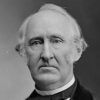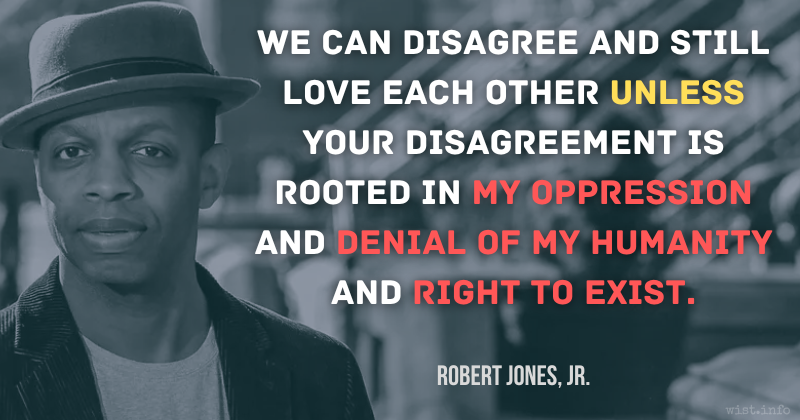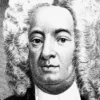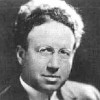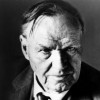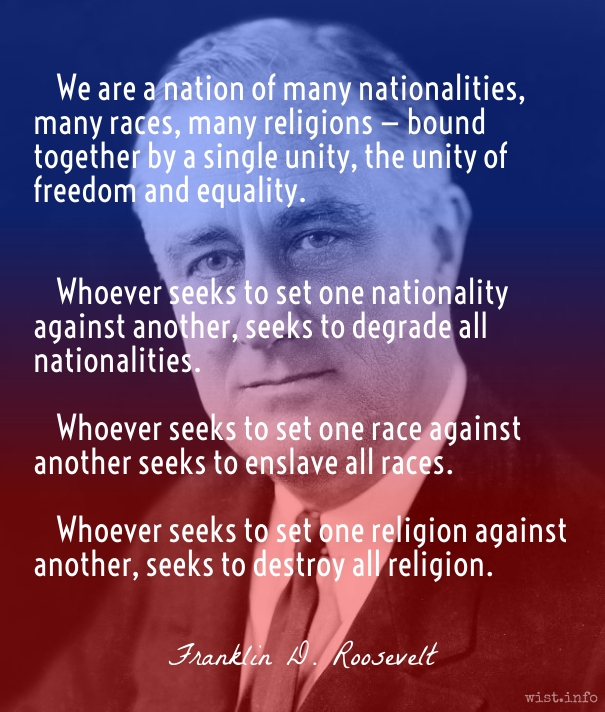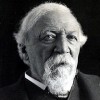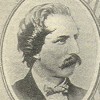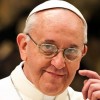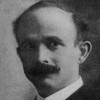Christians are beginning to lose the spirit of intolerance which animated them: experience has shown the error of the expulsion of the Jews from Spain, and of the persecution of those Christians in France whose belief differed a little from that of the king. They have realized that zeal for the advancement of religion is different from a due attachment to it; and that in order to love it and fulfill its behests, it is not necessary to hate and persecute those who are opposed to it.
[On commence à se défaire parmi les chrétiens de cet esprit d’intolérance qui les animoit : on s’est mal trouvé en Espagne, de les avoir chassés, et en France, d’avoir fatigué des chrétiens dont la croyance différoit un peu de celle du prince. On s’est aperçu que le zèle pour les progrès de la religion est différent de l’attachement qu’on doit avoir pour elle ; et que, pour l’aimer et l’observer, il n’est pas nécessaire de haïr et de persécuter ceux qui ne l’observent pas.]
Charles-Lewis de Secondat, Baron de Montesquieu (1689-1755) French political philosopher
Persian Letters [Lettres Persanes], Letter 60, Usbek to Ibben (1721) [tr. Davidson (1891)]
(Source)
Referring to the expulsion of Jews from Spain in 1492, and the persecution of the Huguenots (Protestants) in France culminating under Louis XIV in the late 17th Century (and who were still being persecuted while Montesquieu was writing this).
(Source (French)). Alternate translations:
The Christians begin to lay aside that untolerating Spirit, which used to sway them: the Spaniards are sensible how much they have lost by driving the Jews out, and the French by vexing of Christians whose Belief differed a little from that of the Prince. They are now convinced that the Zeal for the Progress of a Religion, is very different form the Devotion she requires; and that to love and observe her, there is no manner of Necessity for hating and persecuting those who do not.
[tr. Ozell (1736), Letter 58]
Christians begin to lay aside that intolerating spirit which formerly influenced them. Spain hath experienced the bad consequence of having expelled the Jews, and France of having worried the Christians, whose faith differed a little from that of the prince. They are nos sensible that a zeal for the progress of religion is different from that attachment which ought to be preserved towards her; and that, in order to love and obey her, it is not necessary to hate and persecute those who do not regard her.
[tr. Floyd (1762)]
Christians are fast losing that spirit of intolerance which formerly animated them: they are beginning to find out that the expulsion of the Jews from Spain was a mistake, and that the persecution of Christians in France whose beliefs differed a little from those of their sovereign was another. They have discovered that fanatic zeal for the advancement of a religion is far different from the attachment which every one ought to feel towards it, and that, in order to love and practise its precepts, it is not necessary to hate and afflict those who refuse to do so.
[tr. Betts (1897)]
The Christians are beginning to lose that spirit of intolerance which animated them. It is now seen that it was a mistake to chase the Jews from Spain, and to persecute French Christians whose belief differed a bit from that of the king. They now perceive that zeal for the expansion of religion is different from dutiful devotion to it, and that love and observance of a religion need not require hatred and persecution of those who do not so believe.
[tr. Healy (1964)]
Christians are beginning to abandon that spirit of intolerance which formerly inspired them; the Spanish regret having banished the Jews, and the French regret having persecuted Christians whose beliefs differed slightly from those of their monarch. They have realized that zeal for the advancement of religion is different form the love one should bear it, and that in order to love it, and observe its precepts, there is no need to hate and persecute those who do not do so.
[tr. Mauldon (2008), Letter 58]
The Christians are beginning to abandon that old spirit of religious intolerance; it was a mistake to expel the Jews from Spain, just as it was to persecute the Christians in France whose beliefs differed only slightly from those of their king. They have realized here that zeal for the advancement of one's religion is different from the attachment one ought to have for it, and that to love and observe one's faith, it is not necessary to hate and persecute those who do not observe it.
[tr. MacKenzie (2014)]
Quotations about:
intolerance
Note not all quotations have been tagged, so Search may find additional quotes on this topic.
The Puritan is one who uses the Cross as a hammer to knock in the heads of sinners.
H. L. Mencken (1880-1956) American writer and journalist [Henry Lewis Mencken]
A Little Book in C Major, ch. 4, § 26 (1916)
(Source)
In the main, I think religion has done a great deal of harm. Largely by sanctifying conservatism and adhesion to ancient habits, and still more by sanctifying intolerance and hatred. The amount of intolerance that has gone into religion, especially in Europe, is quite terrible.
Bertrand Russell (1872-1970) English mathematician and philosopher
Interview by Woodrow Wyatt, BBC TV (1959)
Collected in Bertrand Russell's BBC Interviews (1959) [UK] and Bertrand Russell Speaks His Mind (1960) [US]. Reprinted (abridged) in The Humanist (1982-11/12), and in Russell Society News, #37 (1983-02).
DRUMMOND: As long as the prerequisite for that shining paradise is ignorance, bigotry and hate, I say to hell with it.
Nedrick Young (1914-1968) American screenwriter and actor [pseud. Nathan E. Douglas]
Inherit the Wind, film (1960) [with Harold Jacob Smith]
(Source)
The original 1951 play was written by Jerome Lawrence and Robert E. Lee, but does not include this line, delivered in the film by Spencer Tracy. Young and Smith share the screenwriting credits.
He who stifles free discussion, secretly doubts whether what he professes to believe is really true.
Wendell Phillips (1811-1884) American abolitionist, orator, social activist
Speech, Daniel O’Connell celebration, Boston (1870-08-06)
(Source)
We can disagree and still love each other unless your disagreement is rooted in my oppression and denial of my humanity and right to exist.
Robert Jones, Jr. (b. 1971) American writer [a.k.a. "Son of Baldwin"]
Twitter (2015-08-18)
(Source)
Frequently misattributed to James Baldwin.
More discussion here: Galería de la Raza: Son of Baldwin.
September ye 15th, 1682
To Ye Aged and Beloved, Mr. John Higginson:There bee now at sea a shippe (for our friend Mr. Esaias Holcroft of London did advise me by the last packet that it wolde sail some time in August) — called ye Welcome, R. Greenaway, master, which has on board an hundred or more of ye heretics and malignants called Quakers with W. Penne who is ye chief scampe at ye hedde of them. Ye General Court has accordingly given secret orders to Master Malachi Huscott of ye brig Porpoise to waylaye ye said Welcome slylie as near ye coast of Code as may be and make captive ye said Penn and his ungodlie crewe so that ye Lord may be glorified and not mocked on ye soil of this new countrie with ye heathen worship of these people. Much spoyle can be made of selling ye whole lotte to Barbadoes, where slaves fetch goode prices in rumme and sugar and we shall not only do ye Lord great good by punishing ye wicked but we shall make great gayne for his ministers and people. Master Huxett feels hopefull and I will set down the newes he brings when his shippe comes back.
Yours in ye bowels of Christ, Cotton Mather
Cotton Mather (1663-1728) American Puritan clergyman, writer
(Spurious)
First printed in an article of the Easton, Pennsylvania Argus (28 Apr 1870), written by James F. Shunk, who claimed that the letter had been found in a "chest of papers" donated to the Massachusetts Historical Society. Though denounced as a forgery almost immediately, the letter continues to circulate now and again (as a particular juicy bit of invective against Puritan hypocrisy). The evidence for considering it a hoax by Shunk is given in Hathaway, "'Ye Scheme to Bagge Penne': A Forged Letter Smears Cotton Mather," The William and Mary Quarterly (Jul 1953).
I love to see a Man zealous in a good Matter, and especially when his Zeal shews it self for advancing Morality, and promoting the Happiness of Mankind: But when I find the Instruments he works with are Racks and Gibbets, Gallies and Dungeons; when he imprisons Mens Persons, confiscates their Estates, ruins their Families, and burns the Body to save the Soul, I cannot stick to pronounce of such a one, that (whatever he may think of his Faith and Religion) his Faith is vain, and his Religion unprofitable.
Joseph Addison (1672-1719) English essayist, poet, statesman
Joseph Addison, The Spectator, #185 (2 Oct 1711)
(Source)
We are told by some of the Jewish Rabbins, that the first Murder was occasioned by a religious Controversy; and if we had the whole History of Zeal from the Days of Cain to our own Times, we should see it filled with so many Scenes of Slaughter and Bloodshed, as would make a wise Man very careful how he suffers himself to be actuated by such a Principle, when it only regards Matters of Opinion and Speculation.
Joseph Addison (1672-1719) English essayist, poet, statesman
The Spectator, #185 (2 Oct 1711)
(Source)
There is nothing in which Men more deceive themselves than in what the World calls Zeal. There are so many Passions which hide themselves under it, and so many Mischiefs arising from it, that some have gone so far as to say it would have been for the Benefit of Mankind if it had never been reckoned in the Catalogue of Virtues. It is certain, where it is once Laudable and Prudential, it is an hundred times Criminal and Erroneous; nor can it be otherwise, if we consider that it operates with equal Violence in all Religions, however opposite they may be to one another, and in all the Subdivisions of each Religion in particular.
Joseph Addison (1672-1719) English essayist, poet, statesman
The Spectator, #185 (2 Oct 1711)
(Source)
When will the churches learn that intolerance, personal or ecclesiastical, is an evidence of weakness? The confident can afford to be calm and kindly; only the fearful must defame and exclude.
Harry Emerson Fosdick (1878-1969) American clergyman, author, teacher
“Tolerance,” sec. 3, Adventurous Religion (1926)
(Source)
A nation which, in the name of loyalty or of patriotism or of a sincere and high-sounding idea, discourages criticism and dissent, and puts a premium on acquiescence and conformity, is headed for disaster.
All laws for the purpose of making man worship God, are born of the same spirit that kindled the fires of the auto da fe, and lovingly built the dungeons of the Inquisition. All laws defining and punishing blasphemy — making it a crime to give your honest ideas about the Bible, or to laugh at the ignorance of the ancient Jews, or to enjoy yourself on the Sabbath, or to give your opinion of Jehovah, were passed by impudent bigots, and should be at once repealed by honest men.
Robert Green Ingersoll (1833-1899) American lawyer, agnostic, orator
Some Mistakes of Moses, Sec. 3 “The Politicians” (1879)
(Source)
‘But people, the ordinary faithful, are offended by crude comic blasphemies,’ voices are raised to tell me. Yes indeed. But what of my religion? I am a lover of truth, a worshipper of freedom, a celebrant at the altar of language and purity and tolerance. That is my religion, and every day I am sorely, grossly, heinously and deeply offended, wounded, mortified and injured by a thousand different blasphemies against it. When the fundamental canons of truth, honesty, compassion and decency are hourly assaulted by fatuous bishops, pompous, illiberal and ignorant priests, politicians and prelates, sanctimonious censors, self-appointed moralists and busy-bodies, what recourse of ancient laws have I? None whatever. Nor would I ask for any. For unlike these blistering imbeciles my belief in my religion is strong and I know that lies will always fail and indecency and intolerance will always perish.
Stephen Fry (b. 1957) British actor, writer, comedian
“Trefusis Blasphemes,” Loose Ends, BBC Radio 4 (1986)
(Source)
Reprinted in Paperweight (1992).
The transition from day to night is bewilderingly swift. Despite what many assume, civilized coexistence in a culture of tolerance is not always the norm, or even universally desired. Democracy is a hard-won, easily rolled back state of affairs from which many secretly yearn to be released.
Uki Goñi (b. 1953) Argentine historian, author
“‘Silence Is Health’: How Totalitarianism Arrives,” New York Review of Books (20 Aug 2018)
(Source)
No one gets upset about the belief that rocks fall down as opposed to up, because all sane people can see it with their own eyes. Not so for the belief that babies are born with original sin or that God exists in three persons or that Ali was the second-most divinely inspired man after Muhammad. When people organize their lives around these beliefs, and then learn of other people who seem to be doing just fine without them — or worse, who credibly rebut them — they are in danger of looking like fools. Since one cannot defend a belief based on faith by persuading skeptics it is true, the faithful are apt to react to unbelief with rage, and may try to eliminate that affront to everything that makes their lives meaningful.
Steven Pinker (b. 1954) Canadian-American cognitive psychologist, linguist, author
The Better Angels of Our Nature, ch. 4 (2011)
(Source)
If today you can take a thing like evolution and make it a crime to teach it in the public school, tomorrow you can make it a crime to teach it in the private schools, and the next year you can make it a crime to teach it to the hustings or in the church. At the next session you may ban books and the newspapers. Soon you may set Catholic against Protestant and Protestant against Protestant, and try to foist your own religion upon the minds of men. If you can do one you can do the other. Ignorance and fanaticism is ever busy and needs feeding. Always it is feeding and gloating for more. Today it is the public school teachers, tomorrow the private. The next day the preachers and the lectures, the magazines, the books, the newspapers. After a while, your honor, it is the setting of man against man and creed against creed until with flying banners and beating drums we are marching backward to the glorious ages of the sixteenth century when bigots lighted fagots to burn the men who dared to bring any intelligence and enlightenment and culture to the human mind.
The time to assert rights is when they are denied; the men to assert them are those to whom they are denied. The community which dares not protect its humblest and most hated member in the free utterance of his opinions, no matter how false or hateful, is only a gang of slaves.
Wendell Phillips (1811-1884) American abolitionist, orator, social activist
“Mobs and Education,” Speech, Twenty-Eighth Congregational Society, Boston (16 Dec 1860)
(Source)
As reported in the Liberator (21 Dec 1860).
Note: There is a synthetic quotation frequently attributed to Phillips that is a actually combination of this one, and these three others:
No matter whose lips that would speak, they must be free and ungagged. The community which dares not protect its humblest and most hated member in the free utterance of his opinions, no matter how false or hateful, is only a gang of slaves. If there is anything in the universe that can’t stand discussion, let it crack.
While Phillips often reused rhetorical elements (as most orators do), this particular combination appears to be combination not actually found in his speeches or writing.
Totalitarianism begins in contempt for what you have. The second step is the notion: “Things must change — no matter how, Anything is better than what we have.” Totalitarian rulers organize this kind of mass sentiment, and by organizing it articulate it, and by articulating it make the people somehow love it.
Hannah Arendt (1906-1975) German-American philosopher, political theorist
Interview with Roger Errera (Oct 1973), The New York Review of Books (26 Oct 1978)
(Source)
I had been religiously educated as a Presbyterian; and tho’ some of the Dogmas of that Persuasion, such as the Eternal Decrees of God, Election, Reprobation, &c. appear’d to me unintelligible, others doubtful, & I early absented myself from the Public Assemblies of the Sect, Sunday being my Studying-Day, I never was without some religious Principles; I never doubted, for instance, the Existence of the Deity, that he made the World, & govern’d it by his Providence; that the most acceptable Service of God was the doing Good to Man; that our Souls are immortal; and that all Crime will be punished & Virtue rewarded either here or hereafter; these I esteem’d the Essentials of every Religion, and being to be found in all the Religions we had in our Country I respected them all, tho’ with different degrees of Respect as I found them more or less mix’d with other Articles which without any Tendency to inspire, promote or confirm Morality, serv’d principally to divide us & make us unfriendly to one another.
Benjamin Franklin (1706-1790) American statesman, scientist, philosopher, aphorist
Autobiography, Part 2 (1785)
(Source)
If we look back into history for the character of the present sects in Christianity, we shall find few that have not in their turns been persecutors, and complainers of persecution. The primitive Christians thought persecution extremely wrong in the Pagans, but practised it on one another. The first Protestants of the Church of England blamed persecution in the Romish Church, but practised it against the Puritans. These found it wrong in the bishops, but fell into the same practice themselves, both here and in New England.
Benjamin Franklin (1706-1790) American statesman, scientist, philosopher, aphorist
Letter in The London Packet (3 Jun 1772)
(Source)
The world is very full of people — appallingly full; it has never been so full before — and they are all tumbling over each other. Most of these people one doesn’t know and some of them one doesn’t like; doesn’t like the colour of their skins, say, or the shapes of their noses, or the way they blow them or don’t blow them, or the way they talk, or their smell or their clothes, or their fondness for jazz or their dislike of jazz, and so on. Well, what is one to do?
There are two solutions. One of them is the Nazi solution. If you don’t like people, kill them, banish them, segregate them, and then strut up and down proclaiming that you are the salt of the earth.
The other way is much less thrilling, but it is on the whole the way of the democracies, and I prefer it. If you don’t like people, put up with them as well as you can. Don’t try to love them; you can’t, you’ll only strain yourself. But try to tolerate them. On the basis of that tolerance a civilised future may be built.
E. M. Forster (1879-1970) English novelist, essayist, critic, librettist [Edward Morgan Forster]
“The Unsung Virtue of Tolerance,” radio broadcast (Jul 1941)
(Source)
Published as "Tolerance," Two Cheers for Democracy (1951)
It is a truism that almost any sect, cult, or religion will legislate its creed into law if it acquires the political power to do so, and will follow it by suppressing opposition, subverting all education to seize early the minds of the young, and by killing, locking up, or driving underground all heretics. This is equally true whether the faith is Communism or Holy-Rollerism; indeed it is the bounden duty of the faithful to do so. The custodians of the True Faith cannot logically admit tolerance of heresy to be a virtue.
Robert A. Heinlein (1907-1988) American writer
“Concerning Stories Never Written” (Oct 1952)
(Source)
You may rejoice to think yourselves secure,
You may be grateful for the gift divine,
That grace unsought which made your black hearts pure
And fits your earthborn souls in Heaven to shine.
But is it sweet to look around and view
Thousands excluded from that happiness,
Which they deserve at least as much as you,
Their faults not greater nor their virtues less?Anne Brontë (1820-1849) British novelist, poet [pseud. Acton Bell]
“A Word to Calvinists” (28 May 1843)
(Source)
Religious discord has lost her sting; the cumbrous weapons of theological warfare are antiquated: the field of politics supplies the alchymists of our times with materials of more fatal explosion, and the butchers of mankind no longer travel to another world for instruments of cruelty and destruction. Our age is too enlightened to contend upon topics, which concern only the interests of eternity; and men who hold in proper contempt all controversies about trifles, except such as inflame their own passions, have made it a common-place censure against your ancestors, that their zeal was enkindled by subjects of trivial importance; and that however aggrieved by the intolerance of others, they were alike intolerant themselves. Against these objections, your candid judgment will not require an unqualified justification; but your respect and gratitude for the founders of the State may boldly claim an ample apology. The original grounds of their separation from the church of England, were not objects of a magnitude to dissolve the bonds of communion; much less those of charity, between Christian brethren of the same essential principles.
Just because you’re offended, doesn’t mean you’re right.
We are a nation of many nationalities, many races, many religions — bound together by a single unity, the unity of freedom and equality. Whoever seeks to set one nationality against another, seeks to degrade all nationalities. Whoever seeks to set one race against another seeks to enslave all races. Whoever seeks to set one religion against another, seeks to destroy all religion.
He was afraid that the world struggle today was not of Communism against Fascism, but of tolerance against the bigotry that was preached equally by Communism and Fascism. But he saw too that in America the struggle was befogged by the fact that the worst Fascists were they who disowned the word “Fascism” and preached enslavement to Capitalism under the style of Constitutional and Traditional Native American Liberty. For they were thieves not only of wages but of honor. To their purpose they could quote not only Scripture but Jefferson.
Sinclair Lewis (1885-1951) American novelist, playwright
It Can’t Happen Here, ch. 36 (1935)
(Source)
There is one characteristic of the present direction of public opinion peculiarly calculated to make it intolerant of any marked demonstration of individuality. The general average of mankind are not only moderate in intellect, but also moderate in inclinations; they have no tastes or wishes strong enough to incline them to do anything unusual, and they consequently do not understand those who have, and class all such with the wild and intemperate whom they are accustomed to look down upon.
For telling a good and incisive religious joke, you should be praised. For telling a bad one, you should be ridiculed and reviled. The idea that you could be prosecuted for the telling of either is quite fantastic.
Rowan Atkinson (b. 1955) English actor, comedian, and screenwriter
Letter to The Times of London (Oct 2001)
(Source)
Regarding proposed legislation outlaw "incitement to religious hatred."
Of all the animosities which have existed among mankind, those which are caused by a difference of sentiments in religion appear to be the most inveterate and distressing, and ought to be deprecated. I was in hopes that the enlightened and liberal policy, which has marked the present age, would at least have reconciled Christians of every denomination so far that we should never again see the religious disputes carried to such a pitch as to endanger the peace of society.
If I could conceive that the general government might ever be so administered as to render the liberty of conscience insecure, I beg you will be persuaded, that no one would be more zealous than myself to establish effectual barriers against the horrors of spiritual tyranny, and every species of religious persecution.
The price of seeking to force our beliefs on others is that some day they might force their beliefs on us.
Mario Cuomo (1932-2015) American politician
“Religious Belief and Public Morality,” John A. O’Brien Lecture, U. of Notre Dame (13 Sep 1984)
(Source)
We have abundant reason to rejoice, that, in this land, the light of truth and reason has triumphed over the power of bigotry and superstition, and that every person may here worship God according to the dictates of his own heart. In this enlightened age, & in this land of equal liberty, it is our boast, that a man’s religious tenets will not forfeit the protection of the laws, nor deprive him of the right of attaining & holding the highest offices that are known in the United States.
George Washington (1732-1799) American military leader, Founding Father, US President (1789-1797)
Letter to the New Church (22 Jan 1793)
(Source)
There are those who believe something, and therefore will tolerate nothing; and on the other hand, those who tolerate everything, because they believe nothing.
Robert Browning (1812-1889) English poet
(Attributed)
(Source)
Cited in Tryon Edwards, A Dictionary of Thoughts (1908 ed.).
How important are free speech and satire? Important enough that people will murder others to silence the kind of speech they don’t like.
Neil Gaiman (b. 1960) British author, screenwriter, fabulist
Twitter (7 Jan 2014)
(Source)
Regarding the mass murder at the Charlie Hebdo magazine in Paris.
The only thing I really can’t tolerate is intolerance. I’m a fuzzy-headed warm-hearted liberal, and I think fuzzy-headed warm-hearted liberalism is an ideological stance that needs defending — if necessary, with a hob-nailed boot-kick to the bollocks of budding totalitarianism. Mutual respect and tolerance is great, but it doesn’t work without the mutuality.
Charles "Charlie" Stross (b. 1964) British writer
“Multiculturalism or Liberalism?” Charlie’s Blog (30 May 2002)
(Source)
I believe we are descendid from the Puritins, who nobly fled from a land of despitism to a land of freedim, where they could not only enjoy their own religion, but prevent everybody else from enjoyin his.
[I believe we are descended from the Puritans, who nobly fled from a land of despotism to a land of freedom, where they could not only enjoy their own religion, but prevent everybody else from enjoying his.]
It always pains me greatly to discover how some Christian communities, and even consecrated persons, can tolerate different forms of enmity, division, calumny, defamation, vendetta, jealousy and the desire to impose certain ideas at all costs, even to persecutions which appear as veritable witch hunts. Whom are we going to evangelize if this is the way we act?
Francis I (b. 1936) Argentinian Catholic Pope (2013- ) [b. Jorge Mario Bergoglio]
Evangelii Gaudium, sec. 100 (24 Nov 2013)
(Source)
The churches used to win their arguments against atheism, agnosticism, and other burning issues by burning the ism-ists, which is fine proof that there is a devil but hardly evidence that there is a God.
He who does not punish evil commends it to be done.
Leonardo da Vinci (1452-1519) Italian artist, engineer, scientist, polymath
Note-books (1508-1518)
(Source)
In some versions, this is translated as "commands it to be done."
Every religion consists of moral precepts, & of dogmas. In the first they all agree. All forbid us to murder, steal, plunder, bear false witness Etc. and these are the articles necessary for the preservation of order, justice, & happiness in society. In their particular dogmas all differ; no two professing the same. These respect vestments, ceremonies, physical opinions, & metaphysical speculations, totally unconnected with morality, & unimportant to the legitimate objects of society. Yet these are the questions on which have hung the bitter schisms of Nazarenes, Socinians, Arians, Athanasians in former times, & now of Trinitarians, Unitarians, Catholics, Lutherans, Calvinists, Methodists, Baptists, Quakers Etc. Among the Mahometans we are told that thousands fell victims to the dispute whether the first or second toe of Mahomet was longest; & what blood, how many human lives have the words ‘this do in remembrance of me’ cost the Christian world!
We all agree in the obligation of the moral precepts of Jesus: but we schismatize & lose ourselves in subtleties about his nature, his conception maculate or immaculate, whether he was a god or not a god, whether his votaries are to be initiated by simple aspersion, by immersion, or without water; whether his priests must be robed in white, in black, or not robed at all; whether we are to use our own reason, or the reason of others, in the opinions we form, or as to the evidence we are to believe. It is on questions of this, & still less importance, that such oceans of human blood have been spilt, & whole regions of the earth have been desolated by wars & persecutions, in which human ingenuity has been exhausted in inventing new tortures for their brethren.
It is time then to become sensible how insoluble these questions are by minds like ours, how unimportant, & how mischievous; & to consign them to the sleep of death, never to be awakened from it. The varieties in the structure & action of the human mind, as in those of the body, are the work of our creator, against which it cannot be a religious duty to erect the standard of uniformity.
Thomas Jefferson (1743-1826) American political philosopher, polymath, statesman, US President (1801-09)
Letter to James Fishback [draft] (27 Sep 1809)
(Source)
Jefferson seriously dialed back his actual response, though he kept both in his files; the final letter read, in this passage:
The interests of society require the observation of those moral precepts only in which all religions agree, (for all forbid us to murder, steal, plunder, or bear false witness.) and that we should not intermeddle with the particular dogmas in which all religions differ, and which are totally unconnected with morality. in all of them we see good men, & as many in one as another. The varieties in the structure & action of the human mind as in those of the body, are the work of our creator, against which it cannot be a religious duty to erect the standard of uniformity.
I never will, by any word or act, bow to the shrine of intolerance, or admit a right of enquiry into the religious opinions of others. on the contrary we are bound, you, I, & every one, to make common cause, even with error itself, to maintain the common right of freedom of conscience. we ought with one heart and one hand to hew down the daring and dangerous efforts of those who would seduce the public opinion to substitute itself into that tyranny over religious faith which the laws have so justly abdicated.
Thomas Jefferson (1743-1826) American political philosopher, polymath, statesman, US President (1801-09)
Letter (1903-04-19) to Edward Dowse
(Source)
If all the good people were clever;
And all clever people were good,
The world would be nicer than ever
We thought that it possibly could.But somehow ’tis seldom or never
The two hit it off as they should,
The good are so harsh to the clever,
The clever, so rude to the good!Elizabeth Wordsworth (1840–1932) English poet, novelist, author
“Good and Clever,” st. 1-2 (1890)
(Source)
It is not to be supposed that the age-old readiness to try to convert minds by pressure or suppression, instead of reason and persuasion, is extinct. Our protection against all kinds of fanatics and extremists, none of whom can be trusted with unlimited power over others, lies not in their forbearance, but in the limitations of our Constitution.
Robert H. Jackson (1892-1954) US Supreme Court Justice (1941-54), lawyer, jurist, politician
American Communications Association v. Douds, 339 U.S. 382, 438-439 (1950) [concurrence and dissent]
(Source)
Man is the religious animal. He is the only religious animal. He is the only animal that has the True Religion — several of them. He is the only animal that loves his neighbor as himself and cuts his throat, if his theology isn’t straight. He has made a graveyard of the globe in trying his honest best to smooth his brother’s path to happiness and heaven.
The most savage controversies are those about matters as to which there is no good evidence either way. Persecution is used in theology, not in arithmetic, because in arithmetic there is knowledge, but in theology there is only opinion.
If a man really believes that God once upheld slavery; that he commanded soldiers to kill women and babes; that he believed in polygamy; that he persecuted for opinion’s sake; that he will punish forever, and that he hates an unbeliever, the effect in my judgment will be bad. It always has been bad. This belief built the dungeons of the Inquisition. This belief made the Puritan murder the Quaker.
Robert Green Ingersoll (1833-1899) American lawyer, agnostic, orator
Interview, The Sunday Union, New Haven, Conn. (10 Apr 1881)
(Source)
The Priesthood, have in all ancient Nations, nearly monopolized Learning. Read over again all the Accounts We have of Hindoos, Chaldeans, Persians Greeks, Romans, Celts, Teutons, We Shall find that Priests had all the Knowledge, and really governed all Mankind. Examine Mahometanism. Trace Christianity from its first Promulgation, Knowledge has been almost exclusively confined to the Clergy. And even since the Reformation, when or where has existed a Protestant or dissenting Sect, who would tolerate, A free Inquiry? The blackest Billingate, the most ungentlemanly insolence, the most yahooish brutality, is patiently endured countenanced propagated and applauded: But touch a solemn Truth in collission with a dogma of a Sect, though capable of the clearest proof; and you will Soon find you have disturbed a Nest, and the hornets will swarm about your legs and hands and fly into your face and Eyes.
You say you’re supposed to be nice to the Episcopalians and the Presbyterians and the Methodists and this, that, and the other thing. Nonsense, I don’t have to be nice to the spirit of the Antichrist.
Pat Robertson (1930-2023) American politician and televangelist
The 700 Club broadcast (1991-01-14)
(Source)
The earliest documentation of this quote I can find is in David Cantor, The Religious Right: The Assault on Tolerance & Pluralism in America, Sec. 1, ch. 1 (1994).
Why should man be afraid to think, and why should he fear to express his thoughts? Is it possible that an infinite Deity is unwilling that a man should investigate the phenomena by which he is surrounded? Is it possible that a god delights in threatening and terrifying men? What glory, what honor and renown a god must win on such a field! The ocean raving at a drop; a star envious of a candle; the sun jealous of a fire-fly.
Robert Green Ingersoll (1833-1899) American lawyer, agnostic, orator
“Heretics and Heresies” (1874)
(Source)
Finally, I believe in an America where religious intolerance will someday end — where all men and all churches are treated as equal — where every man has the same right to attend or not attend the church of his choice — where there is no Catholic vote, no anti-Catholic vote, no bloc voting of any kind — and where Catholics, Protestants and Jews, at both the lay and pastoral level, will refrain from those attitudes of disdain and division which have so often marred their works in the past, and promote instead the American ideal of brotherhood.
John F. Kennedy (1917-1963) US President (1961-63)
Speech, Greater Houston Ministerial Association (12 Sep 1960)
(Source)





